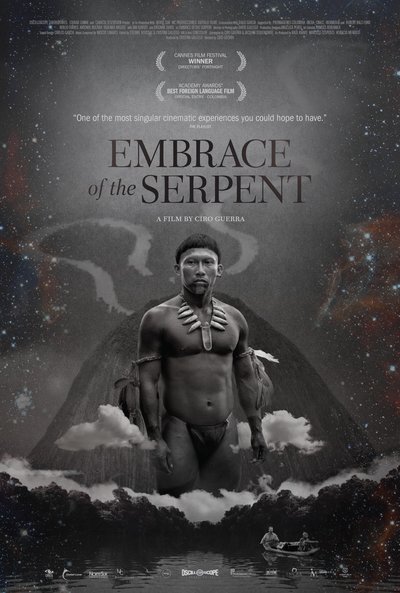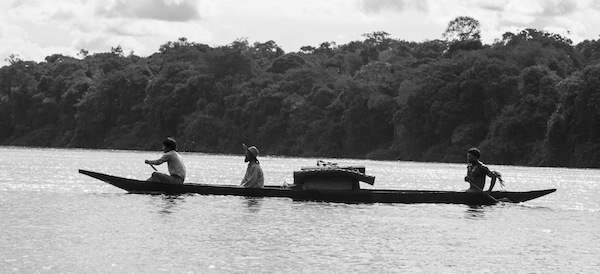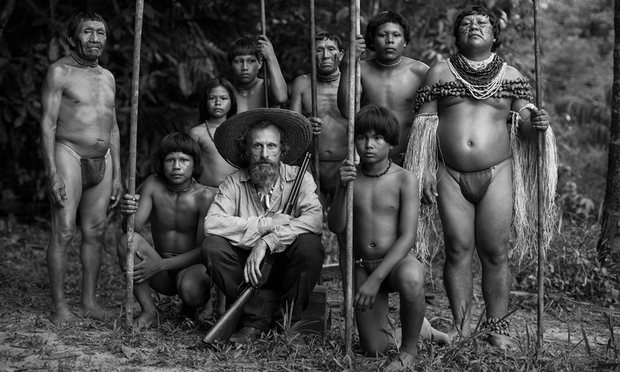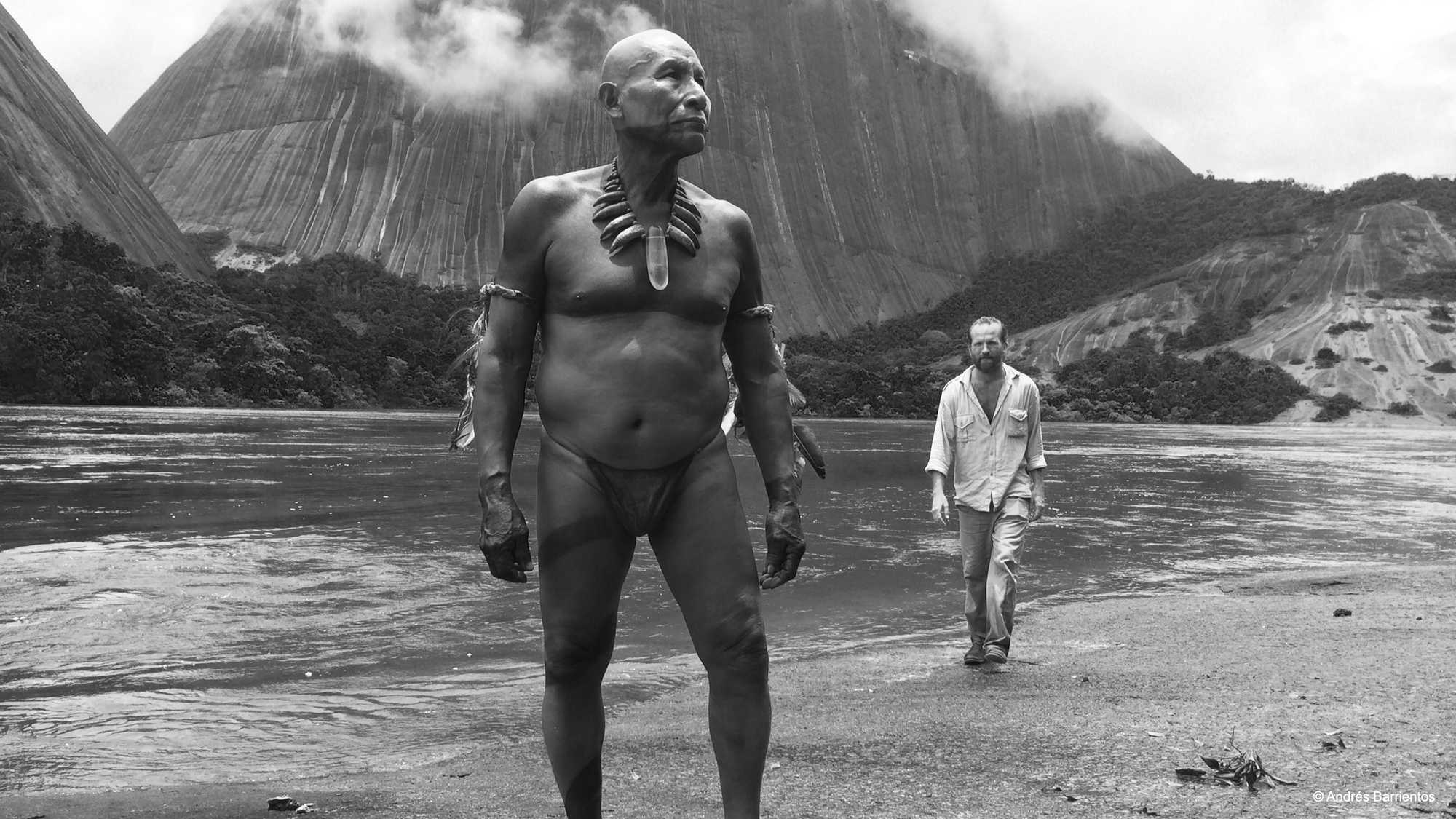
Embrace of The Serpent is my introduction to director Ciro Guerra’s talents, and it doesn’t disappoint. A mix of fantasy and musings on post-colonial history that draws some understandable comparisons between it and Apocalypse Now (both in its aesthetics and some of its subject matter), it’s a refreshing alternative to the stereotypical portrayal of tribal characters as one-note archetypes. On top of that, it also works as a call to respect and preserve cultures/traditions different from one’s own.
Set in Columbia’s Amazon region near the Vaupes river and loosely based on actual journals, the shaman Kraramakate guides two early 20th century scientists over the course of fourty years through the territory. Fictionalized versions of real life explorers Theodor Koch-Grunberg (Jan Bijvoet) and Richard Evans Schultes (Brionne Davis) travel with Karamakate in search of the rare yakruna plant, which causes psychedelic effects for its users and is believed to contain healing properties.

As the story alternates between the two versions of Karamakate, both display some interesting character growth. Niibo Torres and Antonio Bolivar Salvador turn in well ranged, subtly funny and heartfelt performances respectively for both time periods.
While he generally takes his responsibilities seriously, his younger self is noticeably more headstrong and temperamental. He bristles with anger at the foreigners disrupting the jungle as they extract rubber from its trees, and his mistrust of white explorers partially fuels his disapproval of the more modern dress of Theo’s assistant Manduca (Yauenku Migue).

This nevertheless doesn’t prevent Karamakate from forming strong, if oftentimes contentious, bonds between both of his clients. His levity and empathy come forward when he jokes around with Theo over his love letters, and when he teaches his tribe’s history to children at a missionary. His shooting down of a bird and forming it into a headdress in one scene is a great understated display of his demeanor.
Fortunately, Serpent’s humor never impedes on the film’s atmosphere or its ambition. The elder Karamakate is decidedly wiser and calmer in some respects, but he still maintains a degree of stubbornness. His journey of self-discovery is not yet over, as he’s plagued by his fear of transforming into a “chullachaqui”, a man without memories. This alone makes Karamakate a great rebuke of the usual generic native character that only serves to advance the visitor’s story. All three leads are allowed to have compelling narratives, and Bijvoet is great at capturing Theo’s desperation to find the yakruna he’s convinced will cure his illness.
He does recall the mission he previously visited with Theo, only now arguably due to his actions there four decades ago, it’s populated by a bizarre cult led by a maniacally deluded, self-proclaimed messiah. Their ceremony to celebrate his arrival turns out to be one of the film’s most unsettling moments.

Thanks in part to good performances and directing, sharp black/white cinematography from David Gallego and Nascuy Lineras’s ominous score, Embrace of The Serpent is simultaneously a beautiful tribute to endangered people’s, an entertaining journey of personal discovery and a harsh critique of colonialism. Both the commentary and character development coexist well, though they are topped off with a few elements that are borderline science fiction. Yet they don’t necessarily detract from the experience- even as an obvious work of fiction, its message still resonates. Easily recommended.
